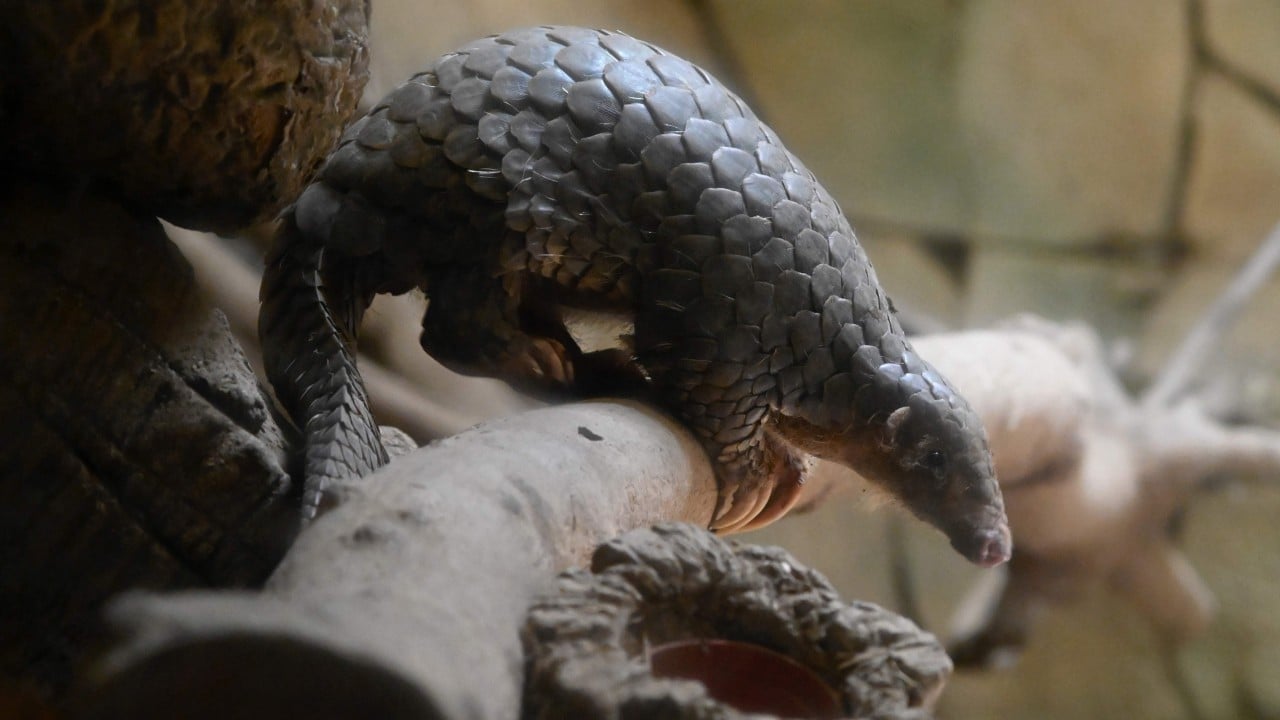
Pangolins removed from Chinese directory of medicines
- Previous editions of Chinese Pharmacopoeia listed mammal’s scales as being good for nursing mothers, promoting blood circulation and reducing swelling
- Beijing last week raised its protection for pangolins – one of the world’s most endangered species – to the highest level
In the 2015 edition of Chinese Pharmacopoeia, pangolin scales are listed as an ingredient of traditional Chinese medicine that can help to “promote blood circulation, increase lactation [and] reduce swelling” among other things.
But in the latest version – editions are published once every five years – all mentions of the animal have been removed, according to a report by Health Times, a state newspaper under the Chinese Communist Party mouthpiece People’s Daily.
While the use of pangolin scales in Chinese medicine has been recommended for centuries, their efficacy has never been scientifically proven. The scales are made of keratin – the same protein found in human nails – and many studies have said that pigs’ nails are an acceptable substitute.

01:23
China removes pangolin from traditional Chinese medicine list
The agency said it would increase surveillance and research of the animal’s habitat and population, and establish designated protection areas.
Beijing banned the hunting of pangolins in 2007 and outlawed imports of the animals and their by-products 11 years later, but they continue to be smuggled into the country. According to the China Biodiversity Conservation and Green Development Foundation, at least 123 tonnes of pangolin scales were confiscated by Chinese authorities last year alone.
With the change in its protected status, anyone found guilty of hunting or trading pangolins could now face a maximum of 10 years in prison, up from five years previously.

“Upgrading pangolins to the top national level is conducive to more effective protection, which is good news for the endangered species,” he was quoted as saying in the Health Times report.
According to a government survey conducted in 2003, there were about 60,000 pangolins living in the wild in 11 Chinese provinces and regions in the late 1990s. But China Biodiversity Conservation and Green Development Foundation said that over the past five years it had observed just 40 in their natural habitat.

The coronavirus is believed to have jumped to humans from bats via an intermediary animal host.
In addition, another traditional Chinese medicine that contains bat faeces has also been removed from the latest edition of Chinese Pharmacopoeia.

